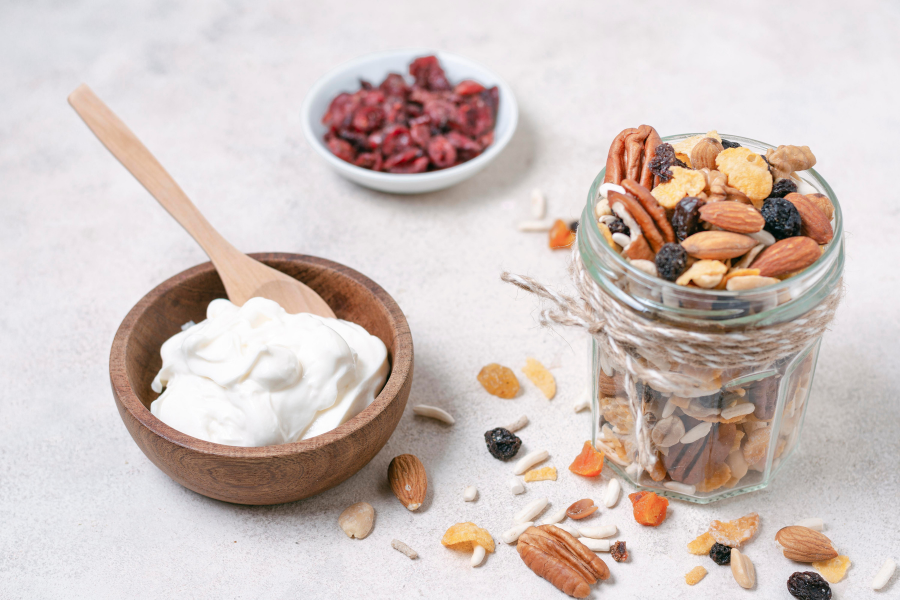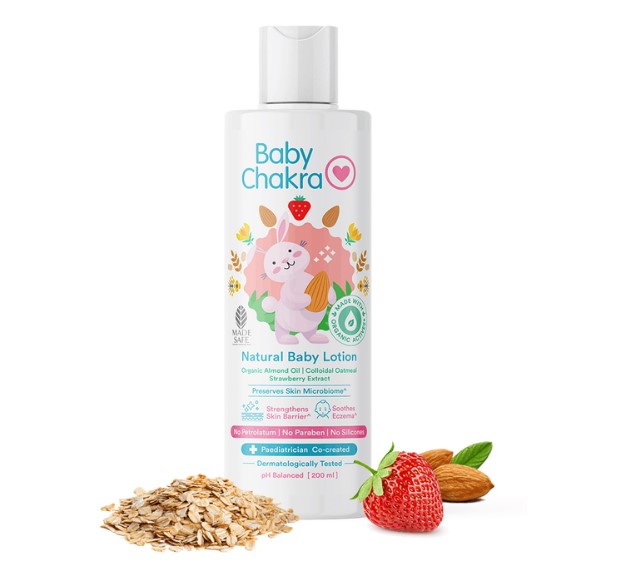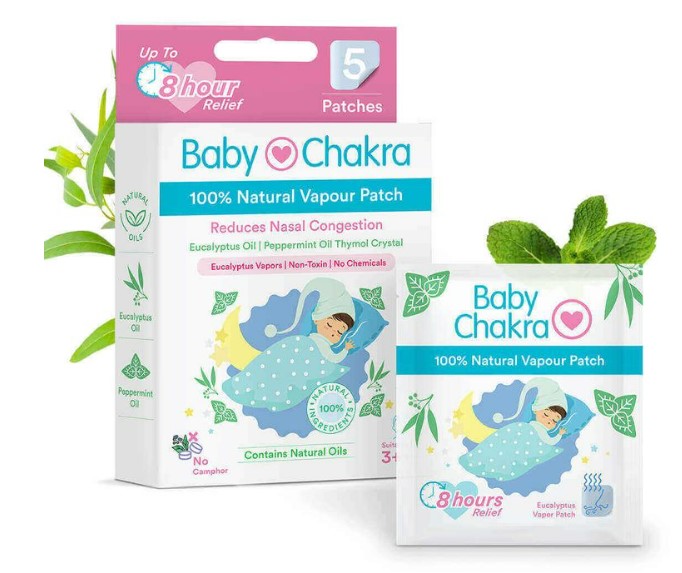
Probiotics During Pregnancy: Safety, Benefits, And Popular Sources
9 May 2023 | 5 min Read
Sudeshna Chakravarti
Author | 799 Articles
Probiotics offer a host of health benefits and have gained a lot of popularity in recent times. The Food and Agricultural Organisation defines probiotics as live microorganisms that when administered in moderate amounts, confer health benefits in the host. What makes them different from other supplements is the fact that they are naturally found in different food items.
But is it safe to consume probiotics during pregnancy? If yes, then what are the natural probiotic-rich foods that you should include in your pregnancy diet? We help answer all your questions in this post.
How Do Probiotics Work During Pregnancy?

Probiotics promote the development of healthy bacteria in your intestine and prevent stomach issues during pregnancy / Image credit: Freepik
In general, probiotics help maintain and modulate a natural balance of bacterial flora in the body, especially in your intestines. Probiotics also inhibit the growth of harmful bacteria and stimulate the development of beneficial bacteria.
The reduction in the bad bacterial load further helps prevent infections and improves your overall well-being and health during pregnancy. Additionally, consuming probiotics during pregnancy also promotes your breast milk’s immunoprotective potential, which may reduce the risk of inflammatory skin conditions like eczema, in the first two years of your child’s life.
Is It Safe To Have Probiotics During Pregnancy?
Yes, it is safe to consume probiotics during pregnancy as they are unlikely to cause any adverse effects. Plus, current research does not indicate the probability of any harmful effects or significant risks on the health of the mum or the baby after regularly consuming probiotics.
However, be cautious about adding probiotics into your pregnancy diet, and consult your healthcare provider to rule out the possibility of any side effects or risks.
What Are The Benefits Of Having Probiotics During Pregnancy?
Probiotics have been associated with many maternal and fetal health benefits. We have discussed the most common ones in this section.
- It helps regulate your weight: Maintaining a healthy body weight is crucial during pregnancy, as excess body fat may lead to several pregnancy complications. A study by the National Library of Medicine indicated that consuming probiotics along with a healthy diet during and after pregnancy can prevent unnecessary weight gain and obesity.
- It improves digestion: The increase in progesterone levels during pregnancy may relax your muscles, leading to slow digestion. The growing uterus may also exert pressure on your stomach, causing slow food movement and constipation. Having probiotics can help your digestive system work more efficiently and manage these stomach issues.
- It helps combat nausea and vomiting: Nausea and vomiting are quite common during the first trimester of pregnancy. Consuming probiotics can help regulate digestion and maintain a healthy gut to prevent acid reflux and nausea.
- It reduces the risk of preeclampsia: An observational study found that women who had probiotic-enriched foods daily or weekly had a reduced risk of preeclampsia. This is because probiotics play a role in maintaining blood pressure and inflammation, both key characteristics of preeclampsia.
- It manages postpartum depression: Regular intake of probiotics can positively influence brain activity. This further helps prevent or manage postpartum depression and anxiety in mums.
- It helps prevent mastitis: Mastitis causes inflammation in the breast tissue and is common among lactating mums. Consuming probiotics regularly during pregnancy may help in the management of infectious mastitis in the postpartum period.
- Reduces symptoms associated with irritable bowel syndrome (IBS): Probiotics promote metabolism and facilitate intestinal mobility. This may manage the symptoms of IBS by maintaining a healthy gut and digestive system.
Which Probiotic Is More Beneficial During Pregnancy?
Probiotics containing Bifidobacterium and Lactobacillus rhamnosus are the most widely used during pregnancy due to their long-term benefits. You can also opt for other over-the-counter probiotics that contain other nutrients like omega-3 fatty acids, calcium, and folic acid, as they are beneficial for both your and your baby’s health.
However, always check with your healthcare provider to determine the safety of the probiotics before adding them to your pregnancy diet.
What Are The Natural Sources Of Probiotics For Pregnant Women?

Yogurt is a probiotic-enriched food item that you can safely incorporate into your pregnancy diet / Image credit: Freepik
You can readily find probiotics in the market in the form of dietary supplements. In addition, there are some fermented foods that are also good sources of probiotics.
However, keep in mind that all fermented foods may not contain good bacteria, and baking them or canning them can further destroy their nutritional qualities. Dairy products are also rich in probiotics, but make sure to pick only pasteurised versions to prevent stomach infections during pregnancy.
Some natural foods that contain probiotics include:
- Pickles
- Kefir
- Yogurt
- Miso
- Sauerkraut
- Kombucha
- Tempeh
- Sourdough bread
- Kimchi
- Buttermilk
- Certain kinds of cheeses
Conclusion
Probiotics contain beneficial bacteria that enhance your digestive and gut health during pregnancy. Additionally, consuming probiotics during pregnancy can offer various health benefits, such as reduced blood pressure, and also prevent the risk of several pregnancy complications. However, do consult your doctor before adding any probiotic-rich foods or supplements to your diet to prevent risks or drug interactions.
Recommended Baby Care Products:
Moisturising Creamy Bathing Bar
Also Read:
High fibre foods during pregnancy: Check out all the benefits of consuming high-fibre foods during pregnancy.
Sugar during pregnancy: How much sugar can you consume during pregnancy? Tap this post to know.
Calcium rich foods during pregnancy: These calcium-rich foods are a must-have during pregnancy. Read on to know more about their nutritional value and benefits.
Cover Image Credit: Freepik.com
A


Related Topics for you
Suggestions offered by doctors on BabyChakra are of advisory nature i.e., for educational and informational purposes only. Content posted on, created for, or compiled by BabyChakra is not intended or designed to replace your doctor's independent judgment about any symptom, condition, or the appropriateness or risks of a procedure or treatment for a given person.



